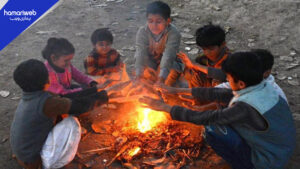Karachi Records Lowest March Temperature in 45 Years – Weather Update
-
Rida Shahid
-
- Published March 6, 2025

Karachi experiences a seasonal transition in March, moving from mild winter temperatures to the warmth of summer. This shift often results in unpredictable weather patterns, making it essential for residents to stay informed. With Ramadan 2025 falling between February 28 and March 29, understanding Karachi’s March weather is crucial for those observing fasting.
Karachi Low March Temperatures
Historically, Karachi’s average high temperatures in March range between 29°C and 33°C, while nighttime lows typically fall between 17°C and 22°C. However, unusual temperature variations have occurred in the past. For instance, on March 2, 2024, Karachi recorded a minimum temperature of 19°C, marking the lowest March temperature in 45 years. Conversely, the city has also experienced extreme heat, with March highs reaching 42°C in 2004, 2010, and 2022.
Weather in Karachi During Ramadan 2025
As Ramadan 2025 begins on February 28 and continues until March 29, Karachi’s weather conditions will shift significantly. The Pakistan Meteorological Department predicts a pleasant start, with moderate temperatures in the early days. However, starting March 6, daytime highs are expected to rise between 35°C and 37°C, increasing discomfort for those fasting.
By March 20, Karachi could experience a surge in heat, leading to even hotter conditions in the last ten days of Ramadan. This pattern aligns with previous years when late-March temperatures became significantly warmer, posing challenges for residents observing Sehri and Iftar.
With rising temperatures expected, it is essential to take precautions, especially for those fasting. Here are some essential tips:
- Stay Hydrated: Drink plenty of water during Sehri and Iftar to prevent dehydration.
- Avoid Direct Sunlight: Try to stay indoors during peak heat hours, usually between 12 PM and 4 PM.
- Dress Lightly: Wear breathable and loose-fitting clothes to stay cool.
- Monitor Weather Updates: Stay informed about temperature spikes and possible heatwaves.
While Karachi’s March weather can be unpredictable, staying prepared can help make Ramadan 2025 more manageable. The transition from winter to summer means that temperatures may fluctuate, but with proper planning, residents can comfortably observe fasting. Keep an eye on weather forecasts, and take necessary precautions to stay safe during this holy month.







Leave a Reply